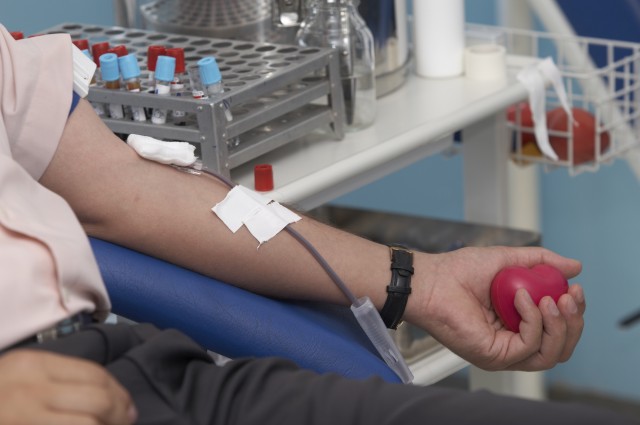The Food and Drug Administration is proposing a policy change that would end a 31-year ban on blood donations from men who have sex with men. The ban was put in place at the dawn of the AIDS epidemic when little was understood about the disease. Under the proposed change, gay men who have not had sexual contact in a year would be allowed to donate blood.
In a statement, the FDA said that "it will take the necessary steps to recommend a change to the blood donor deferral period for men who have sex with men from indefinite deferral to one year since the last sexual contact." Officials say the change is motivated by research. Australia, Japan and the United Kingdom already have similar policies in place.
The FDA has been considering the move for some time. Earlier this month, Ryan James Yezak with the National Gay Blood Drive told KQED that he thought that any ban was discriminatory, but said that the move toward one year, instead of a lifetime ban, was a step in the right direction.
“People who need blood don’t care whether it’s straight blood or gay blood,” he said. “Blood is blood. They want safe blood, and that is something our community has to offer.”
The agency will recommend the switch in draft guidelines early next year after a period of public comment. FDA Deputy Director Dr. Peter Parks declined to give a timeframe for completing the process but said, "We commit to working as quickly as possible on this issue."
